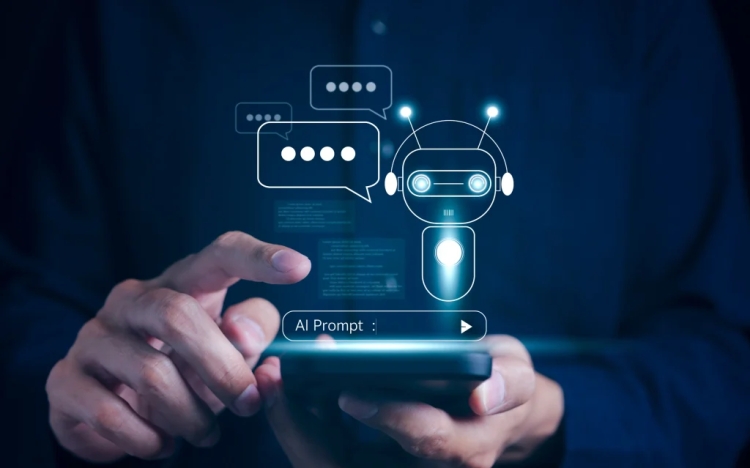What Are Artificial Intelligence Development Services? Concept, Need, and Benefits
AI development services help businesses integrate intelligent solutions like machine learning, automation, and predictive analytics to boost efficiency and innovation.

Artificial Intelligence (AI) is no longer just a buzzword or a futuristic concept. It has evolved into a core technology that is shaping how businesses operate, innovate, and engage with customers. As industries across the globe look for smarter, more efficient ways to solve complex problems, AI development services have gained prominence. But what exactly are these services, and why are they so crucial in today’s tech-driven world? This post will explore the concept of AI development services, why they are in demand, and the wide-ranging benefits they offer.
What Are AI Development Services?
AI development services refer to the set of specialized solutions and capabilities designed to integrate artificial intelligence into business operations, products, and processes. These services can include a wide range of offerings, from AI-powered software applications to the development of machine learning models, automation systems, and advanced data analytics tools. AI development can also cover the creation of intelligent virtual assistants, chatbots, recommendation systems, and predictive analytics.
The goal of AI development services is to help organizations use machine learning algorithms, natural language processing, computer vision, and robotics to solve problems, enhance decision-making, automate repetitive tasks, and improve operational efficiency. AI development services are typically provided by experienced developers, AI consultants, and specialized AI firms that have expertise in building and deploying AI-driven solutions.
Key Components of AI Development
AI development is not a single step but an intricate process that involves several stages and technologies. Some of the key components include:
-
Machine Learning (ML): A subfield of AI that enables machines to learn from data and improve over time without explicit programming. ML algorithms analyze data patterns to predict outcomes, automate processes, and make decisions.
-
Natural Language Processing (NLP): This component focuses on enabling machines to understand and interpret human language. It is used in applications like chatbots, virtual assistants, sentiment analysis, and automated translation.
-
Computer Vision: This technology enables machines to interpret and make sense of visual information from the world, such as images and videos. It's crucial in applications like facial recognition, object detection, and autonomous vehicles.
-
Robotics: AI-driven robots can perform tasks traditionally done by humans. These robots can be used in industries like manufacturing, healthcare, and logistics to improve efficiency and safety.
-
Deep Learning: A subset of machine learning that uses neural networks to simulate the way the human brain processes information. Deep learning is especially useful for tasks like image recognition, speech recognition, and complex decision-making.
-
Predictive Analytics: This involves using historical data and machine learning algorithms to predict future trends and behaviors, which can be helpful in industries such as finance, healthcare, and marketing.
-
AI-Powered Automation: AI development services often focus on automating repetitive tasks through robotic process automation (RPA) or intelligent automation, leading to cost savings and efficiency.
Why Are AI Development Services Necessary?
In today’s fast-paced, data-driven world, businesses must adapt quickly to changing market conditions and consumer demands. AI development services are essential for several reasons:
-
Complex Problem-Solving: As businesses collect massive amounts of data, the need to analyze this data and gain actionable insights becomes paramount. AI development services help organizations solve problems that are too complex for traditional methods.
-
Improved Decision-Making: AI-powered tools allow businesses to make data-driven decisions with higher accuracy. Algorithms analyze historical data to predict future trends, helping companies take proactive measures and avoid risks.
-
Competitive Advantage: Companies that integrate AI into their processes can often outperform competitors. AI technologies can optimize operations, reduce operational costs, and enhance customer experiences, giving businesses a strong edge.
-
Automation of Repetitive Tasks: Many tasks in industries such as finance, manufacturing, and customer service can be automated through AI. By integrating AI development services, businesses can free up human resources for more strategic, high-value activities.
-
Innovation and New Opportunities: AI development opens doors to new products, services, and business models. From personalized marketing campaigns to self-driving cars, AI enables businesses to innovate and stay ahead in an increasingly competitive marketplace.
-
Enhanced Customer Experience: AI-driven chatbots, virtual assistants, and recommendation engines can create more personalized, engaging, and efficient customer interactions. These technologies help improve customer satisfaction and loyalty.
-
Cost Efficiency: Automation and predictive analytics lead to improved efficiency and reduced operational costs. AI can streamline processes such as inventory management, fraud detection, and supply chain optimization, resulting in significant savings for businesses.
Benefits of AI Development Services
AI development services offer businesses a broad array of benefits, all aimed at improving operational performance, customer satisfaction, and overall profitability. Some of the most notable benefits include:
1. Automation of Routine Processes
AI can take over repetitive, mundane tasks like data entry, scheduling, and customer service inquiries. By reducing the burden on human workers, AI frees them to focus on more complex and strategic tasks. In industries like finance, AI tools can handle risk assessments and compliance checks faster and more accurately than manual methods.
2. Better Data Management
With AI, businesses can manage and analyze vast amounts of data more effectively. AI-powered data analytics tools can sift through data to uncover patterns, trends, and anomalies that would be difficult for a human to spot. This allows businesses to make informed decisions based on real-time insights.
3. Scalability
AI development services make it easier for businesses to scale operations. For instance, AI algorithms can adjust to handle increasing volumes of transactions or data inputs without requiring significant investments in infrastructure. This scalability is particularly beneficial for businesses experiencing rapid growth or those with fluctuating demands.
4. Enhanced Customer Interactions
AI-powered solutions like chatbots, virtual assistants, and automated customer service tools offer businesses the ability to provide 24/7 customer support. These systems can resolve customer queries quickly and effectively, providing a better experience for the end user while reducing the need for human intervention.
5. Improved Accuracy and Precision
AI can significantly reduce human error by automating complex processes. In fields such as healthcare, AI-powered tools can assist in diagnosing diseases, reading medical images, and analyzing patient data with much greater accuracy than traditional methods. Similarly, in manufacturing, AI can monitor production lines and identify defects or inefficiencies in real time.
6. Predictive Capabilities
AI development services can help businesses predict future trends and behaviors. For instance, in retail, predictive analytics can help forecast customer demand, optimizing inventory levels and reducing waste. In finance, AI can be used to predict market trends or assess investment risks. These predictive capabilities provide businesses with a forward-looking view, allowing them to take preventative actions before issues arise.
7. Cost Savings
By automating tasks, improving efficiency, and reducing errors, AI can help businesses save money. For example, in supply chain management, AI tools can forecast demand more accurately, preventing overproduction or stockouts. In HR, AI-powered recruitment tools can reduce the time and cost associated with hiring new employees.
8. Personalized Experiences
AI allows businesses to create more personalized offerings for their customers. For instance, recommendation algorithms in e-commerce platforms suggest products based on customer behavior, leading to higher conversion rates. In healthcare, AI can help create personalized treatment plans based on an individual’s medical history.
9. Increased Productivity
AI-powered automation leads to improved operational efficiency and higher productivity levels. For example, AI in manufacturing can optimize assembly lines, reducing downtime and increasing output. In offices, AI tools can automate scheduling, data entry, and other administrative tasks, allowing employees to focus on high-impact work.
Real-World Applications of AI Development Services
AI development services are widely used in various industries, with notable applications including:
-
Healthcare: AI is being used for diagnostic imaging, personalized medicine, drug discovery, and robotic surgeries. Machine learning models can predict patient outcomes and recommend the best treatment options based on large datasets.
-
Retail: AI development services are used for personalized shopping experiences, inventory management, predictive analytics, and customer support. Chatbots and virtual assistants handle customer inquiries, while recommendation engines suggest products to increase sales.
-
Finance: AI helps with fraud detection, credit scoring, algorithmic trading, and customer service automation. Financial institutions use AI-powered tools to identify fraudulent transactions and offer personalized investment advice.
-
Manufacturing: AI improves production lines, monitors equipment health, and optimizes supply chains. Predictive maintenance tools help companies reduce downtime and prevent equipment failures.
-
Transportation and Logistics: AI-driven solutions help optimize routes, reduce fuel consumption, and improve fleet management. Autonomous vehicles and drones are transforming the way goods are delivered and transported.
-
Education: AI is used in personalized learning platforms, automated grading systems, and chatbots that assist students with queries. It helps educators create customized learning experiences based on individual student needs.
Conclusion
AI development services are reshaping industries across the globe, offering businesses smarter ways to solve problems, improve processes, and create new value for customers. From automating routine tasks to providing actionable insights through predictive analytics, AI is becoming an indispensable tool for modern enterprises. By integrating AI into their operations, companies can gain a competitive edge, boost productivity, and reduce costs, all while improving customer satisfaction.
The demand for AI development services is set to grow as businesses continue to recognize the power of artificial intelligence. For companies looking to remain competitive in today’s fast-evolving market, leveraging AI technology is no longer optional—it’s a necessity.
What's Your Reaction?























